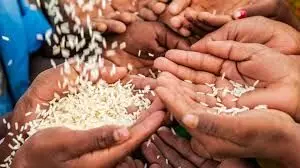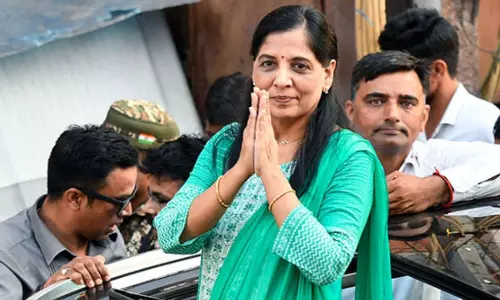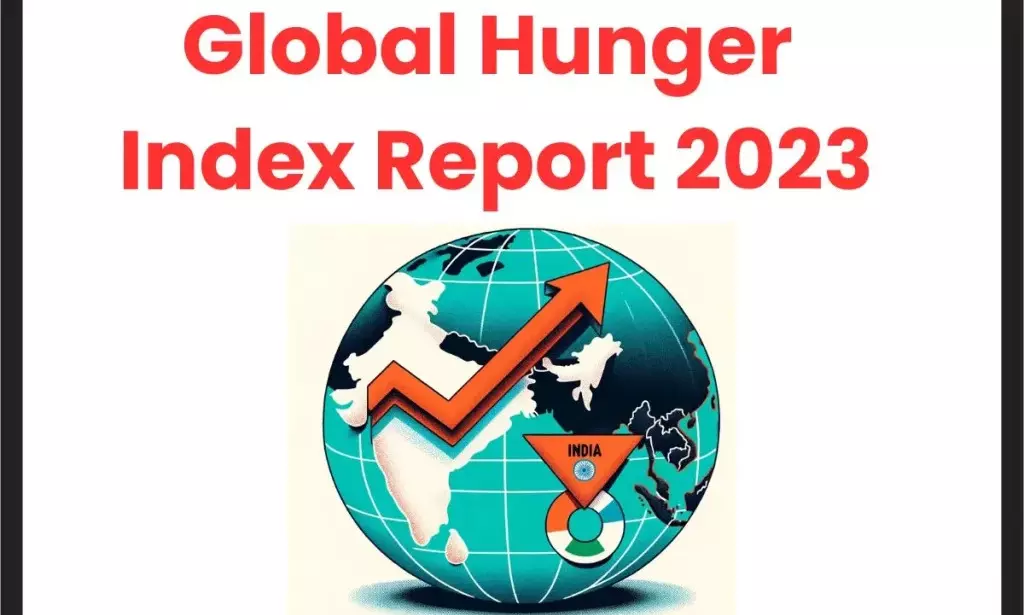
Rejecting the reports won’t eliminate hunger
text_fieldsIndia's position in the Global Hunger Index (GHI) 2023 has dropped further. The Index has placed India at 111th position out of the 125 countries, based on the 2022 Status Report. In 2014, India had the 55th place, but a year ago, the country slipped to 107th place. India has now been classified in the 'serious' category. A country with the highest number of underweight children, we also rank poorly in child stunting, under-nourishment and child mortality. The country, which claims to be a global economic power, is now rated worse than Pakistan, Bangladesh and sub-Saharan countries in the crucial aspect of nutrient availability. As done previously, the Union Government has rejected the GHI. The Ministry of Women and Child Development (MoWCD) says that the GHI has been prepared with a faulty methodology and with the wrong intention. In fact, the index is prepared using official data. Its methodology is transparent and equally applicable to all countries. India cannot deny the plight of millions of people suffering from poverty, food shortages, and starvation by merely highlighting its GDP size and emphasizing that the country is not only self-sufficient in the food sector but is also a food exporter.
 Also Read:Global Hunger Index ranks India ranks 111th; govt calls report 'flawed'
Also Read:Global Hunger Index ranks India ranks 111th; govt calls report 'flawed'
A NITI Aayog report titled National Multidimensional Poverty Index (MPI) says that about 15 per cent of the population faces extreme poverty. According to the National Family Health Survey, infant mortality and stunted growth in children are on the rise in Maharashtra. The growth monitoring app ‘Poshan Tracker’ revealed last month that an estimated 43 lakh children in India are malnourished. By totally rejecting the GHI, the government is undermining its own credibility. This has happened in ratings and comments in other domains too.In the recently released World Press Freedom Index, India ranked poorly. The government rejected it saying that the methodology was ‘non-transparent’. The Environment Performance Index (EPI) prepared by Yale University placed India at the absolute bottom of 180 countries. However, the government rejected that as well. When China encroached upon the Indian territory, the government denied it. When the US Commission pointed out that religious discrimination was on the rise in India, that was denied as well. When India’s status as a free country was downgraded from ‘free’ to ‘partly free’ by Freedom House, a U.S-based NGO, the government said that the report was ‘misleading and incorrect’. When the V-Dem Institute's Democracy Report said that in the past year, democracy had weakened in many parts of the world and it had weakened worst in India, the government accused it of 'dubious methodology'. At the same time, the government has stated in the parliament more than once that many crucial records in the health and public welfare sectors are not available. Census, which is essential for planning is being delayed indefinitely as well.
 Also Read:Centre slams Global Hunger Index Report 2022
Also Read:Centre slams Global Hunger Index Report 2022
Statistics and independent reports are the core foundations of development. As measures to improve and rectify performance, it is wise to accept them. Although subsidised food is being provided to 80 crore people as per the food security policy, it’s estimated that an additional 14 crore more people are eligible. Still, the food subsidy has been reduced to one-third in this year’s Union Budget, i.e. 28 per cent less. About 74 per cent of Indians do not have access to healthy food due to low income and rising prices. Billionaires are multiplying, and their incomes are also increasing. Government spending and unnecessary expenditures are on the rise. Meanwhile, the common man is being pushed into poverty. India's Sustainable Development Goals (SDGs), which extend to 2030 and state that no one should be left to starve, are just six years away from their designated timeframe. These goals can be achieved only through effective schemes aimed at the common people, by accepting real figures and data, rather than relying on slogans.























